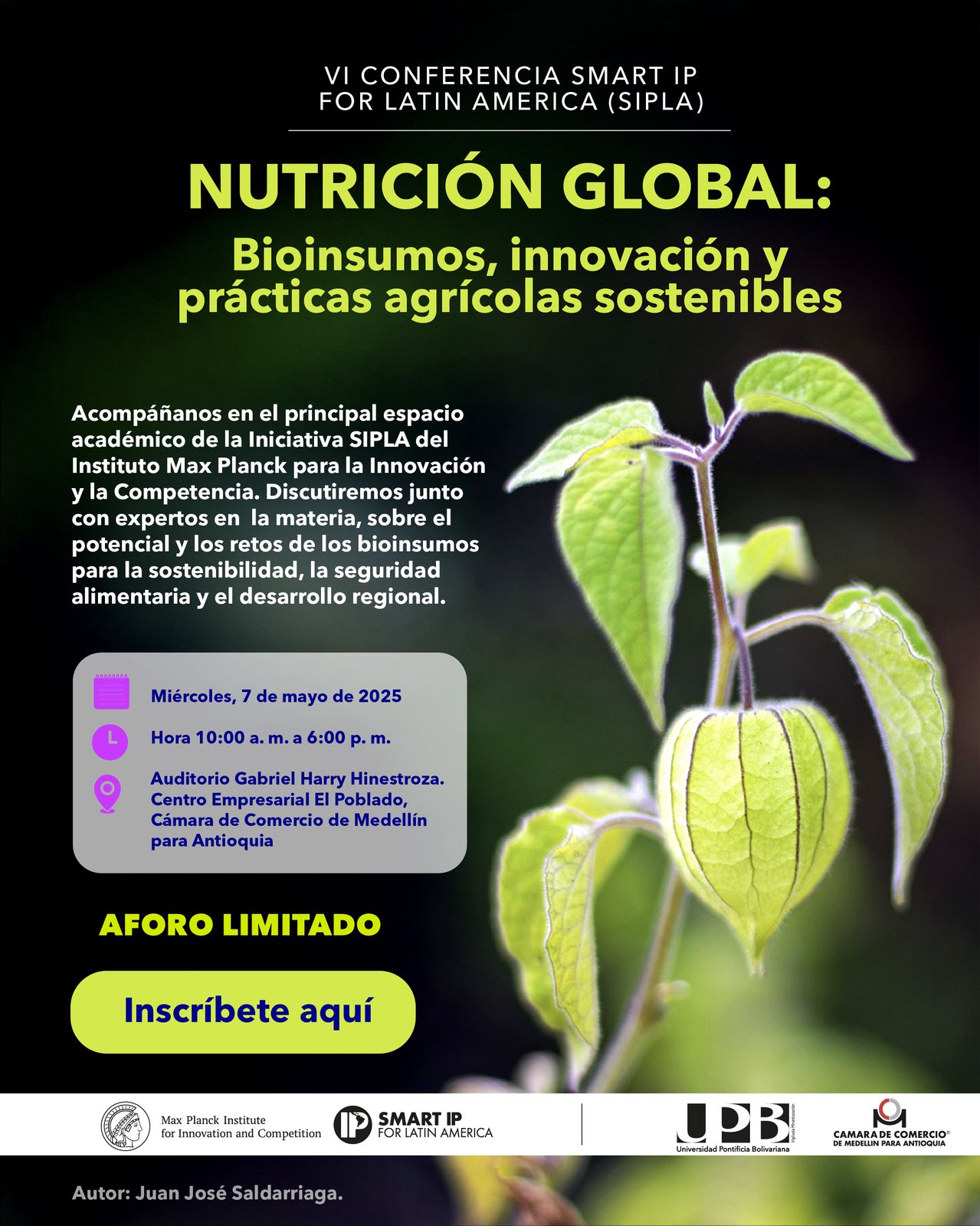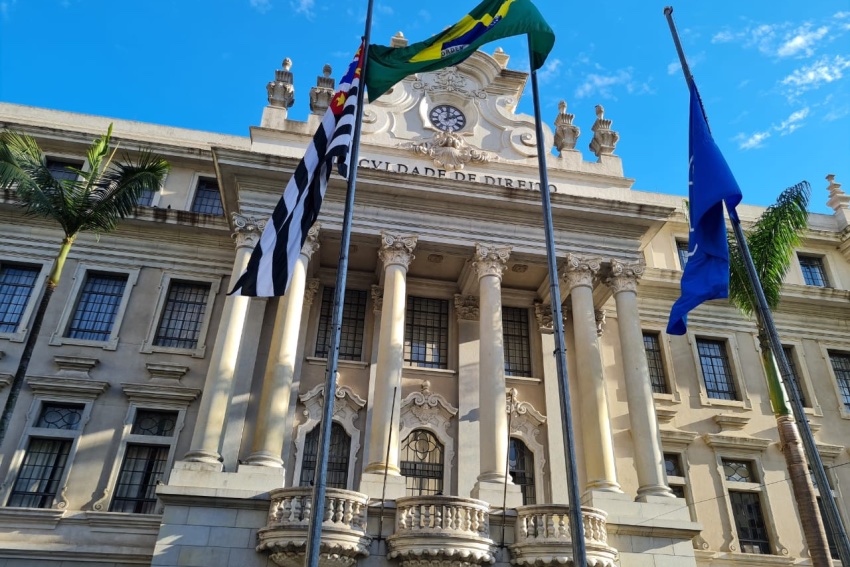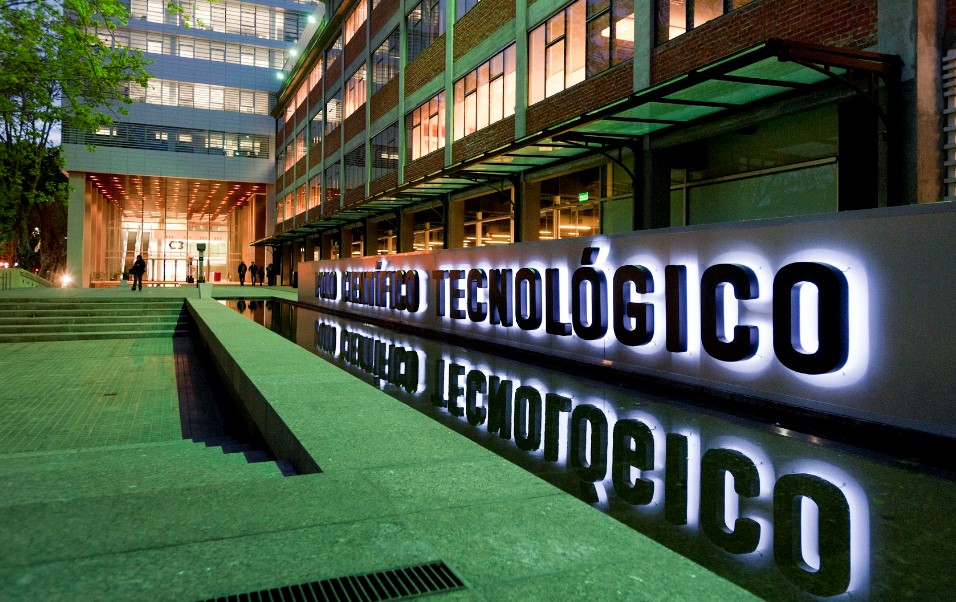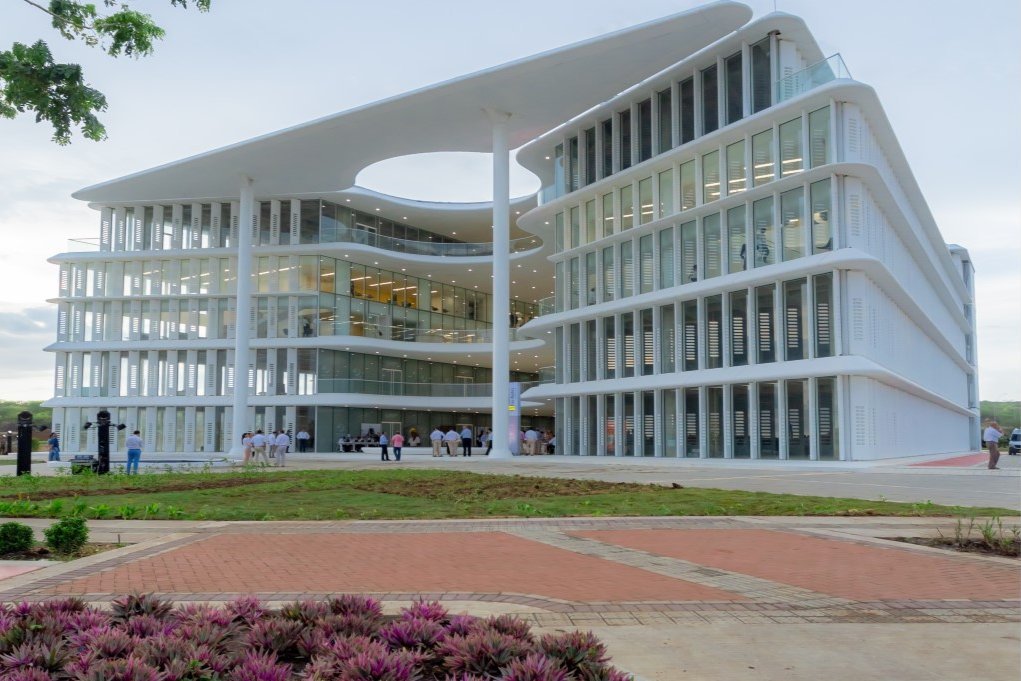

Global Nutrition: Bio-inputs, innovation and sustainable agricultural practices.
7 May 2025. Medellin, Colombia.
The VI Annual Conference of the SIPLA Initiative continued its analysis of global nutrition issues, focusing this time on bio-inputs as a possible solution for sustainable and innovative food production. The potential and technical challenges of bio-inputs, their production and use in Latin America, relevant regulatory frameworks, and the impact of intellectual property and regional integration on agricultural and innovation processes related to these technologies were discussed.

Global Nutrition: Towards a smart production system.
The 5th Annual Conference of the SIPLA 2024 Initiative has focused on the incorporation of new technologies in food production, with the aim of promoting a paradigm shift towards more efficient production systems to favour global nutrition. Emerging technologies in smart agriculture and their regulatory challenges were addressed through an interdisciplinary perspective.

What are the challenges and the appropriate regulatory frameworks to promote technology transfer and regional innovation in the sectors of renewable energies in Latin American countries? In view of the global importance of developing the region's great potential for the production of renewable energies in an economically sustainable manner, the IV Annual Conference of the Smart IP Initiative for Latin America (SIPLA) sought to answer these questions in debates between academics, regulation specialists and market players.

The third annual conference of the Initiative took place 16 March 2022, in Buenos Aires, Argentina. It was organized in collaboration with the Ministry of Science, Technology and Innovation (MINCYT).

The second annual conference of the Initiative took place from 3 to 5 April 2019, in Cartagena de Indias, Colombia. It was organized and hosted in collaboration with the Universidad de los Andes.

The first annual conference of the Initiative took place from 21 to 23 March 2018, in Santiago de Chile. It was organized and hosted in collaboration with the Chilean National Institute of Industrial Property (INAPI).